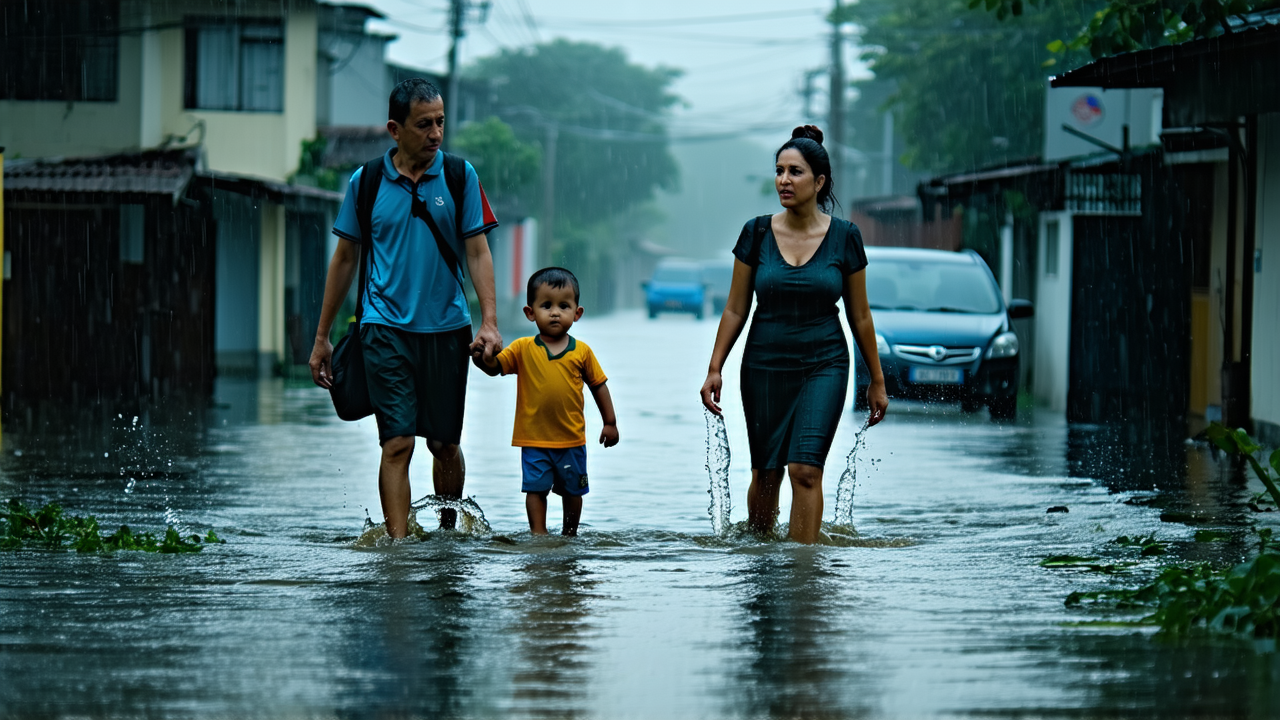Flood Victims Will Not Be Left to Suffer Alone, Says Report Chair
Flood Victims Will Not Be Left to Suffer Alone, Says Report Chair
As climate change continues to reshape the landscape of New Zealand, the role of government in supporting communities affected by natural disasters is under intense scrutiny. The chair of a recent, controversial report on climate adaptation has emphasized that flood victims will not be left to fend for themselves, despite the report's initial criticism for suggesting a potential shift in policy.
Matt Whineray, the chair of the report's panel, clarified that the panel's intention was not to abandon flood victims to their own devices. Instead, the report proposed a transition period of approximately 20 years during which the government would still play a critical role in alleviating hardship. However, the panel argued that it is unsustainable for councils and the central government to continue purchasing properties at market rates in high-risk areas, especially when these properties are not suitable for rebuilding and lack private insurance coverage.
Whineray acknowledged that the government will always have a role in helping those affected by disasters. However, he stressed that this assistance should not be tied to property value. He pointed to international examples where governments have repeatedly rebuilt homes in the same high-risk locations, with the government acting as the default insurer.
Whineray warned that the assumption that people should be compensated for their full pre-flood property value is costly for taxpayers and unsustainable in the long term. He suggested alternative methods of compensation, such as capping the amount of relocation assistance provided.
Professor Jonathan Boston of Victoria University, who led a previous report on planned exits from high-risk areas, echoed these sentiments. He noted that while financial support is necessary to avoid worsening inequality, the primary goal should not be to restore people's full wealth. He also highlighted the challenges many people face in relocating, including mortgage obligations and the inability to sell properties in high-risk zones, which can leave individuals in a state of 'property purgatory.'
Professor Dave Frame of Canterbury University, who has studied the increasing severity of extreme weather events due to climate change, acknowledged the complexity of balancing compensation and risk. He warned of 'moral hazard' when funds are made available to those who may not have acted responsibly in choosing their property locations.
The environment ministry is currently working on a financial plan that could provide a more sustainable approach to managing flood risks in the future. However, the details of who will bear the costs and how the transition will be managed remain unclear.
As the debate continues, it is clear that the government must find a way to support communities while ensuring that public resources are used wisely. The challenge lies in balancing the need for immediate assistance with the long-term goal of creating resilient, sustainable communities.
Opinion: While the idea of phasing out government buyouts may seem harsh, it reflects a necessary shift in how we approach climate adaptation. The government must act as a responsible steward of public funds, ensuring that support is given where it is most needed, while also encouraging communities to make informed, sustainable choices about where they live.
